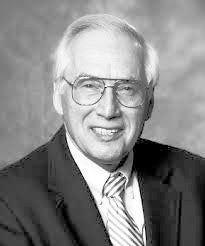Editorial: Absent skills and lost years
Published 12:00 am Thursday, December 17, 2015

- Dr. Gene Bottoms is founder of High Schools That Work and senior vice president of the Southern Regional Education Board.
Interesting insights come up when community leaders get together to talk about education.
Here are some tidbits from one of the meetings set up Tuesday by Dr. Lynn Moody, superintendent of the Rowan-Salisbury Schools, for visiting expert Dr. Gene Bottoms, founder of High Schools that Work. He had lunch with a group of local government, business and education leaders.
Bottoms has worked for decades to raise awareness of the need for post-secondary education that does not require a four-year college degree.
The lost years: Bottoms advocates credentials for all, meaning that every high school student would be on track to pursue advanced training in some field. Currently, students who aren’t aiming for college often don’t make any plans — and they struggle. Bottoms said too many wait until they’re 28 or 29 to get serious about choosing a field and gaining a skill. “The 20s are the lost decade,” he said.
Rethinking guidance: Dr. Carol Spalding, president of Rowan-Cabarrus Community College, said 13 percent of local high school graduates go straight into RCCC. To double that, as Bottoms suggested, the people who advise high school students would need to change their emphasis. “Guidance counselors want everybody to go to Duke,” Spalding said.
Moody said guidance counselors are 10-month employees who have time only for putting out fires. Big thinking about career pathways takes planning time.
But it can be done, Bottoms said. Focusing on post-secondary training of all kinds would take a shift in counselors’ thinking, he said. They’d be counseling students for a career and a credential — not just a four-year degree.
Males in decline? Bottoms said there is a need to blend academics and the real world. Males in particular need to see the practical value of developing strong math and literacy skills, he said, and pursuing higher education and/or certification. Females get 60 percent of the four-year college degrees these days and make up 61 percent of RCCC’s enrollment. “We can’t leave anyone out,” Spalding said. The college’s information technology program is heavily male, she said, and a truck-driving school is being developed. “We’ve got to create opportunities for people of all kinds,” she said.


